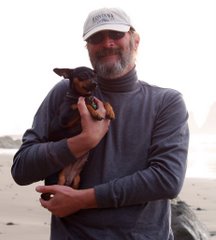To know, know, know him is to love, love, love him
Just to see him smile, makes my life worthwhile
To know, know, know him is to love, love, love him
And I do
--Sung by The Teddy Bears
There are many things I wish I knew. For one thing, I wish I knew how to read Plato in the original Greek. I wish I knew if the title of this post is spelled correctly--most on-line sources leave out the epsilon so that it reads "Γνῶθι σαύτόν," but I distinctly remember it the way I’ve written it in the title, and I found at least one on-line reference that has it with the simple e. I studied ancient Greek in
The ancient Greek language is the hardest thing I have ever tried to learn. It was harder than Physics, or Organic Chemistry—although a lot more fun than the latter. For one thing, Greek has three numbers. In linguistic terms, number refers to what we in English think of as “singular” and “plural.” I’ve been told that there are cultures which count, “one, two, many.” Our culture is dualistic. We like things to be either/or, one thing or the other, black or white, singular or plural. The ancient Greeks were much more in tune with reality than we. They recognized that not everything can be condensed down to us or them. With regard to number, they not only saw things as singular or plural, but they recognized some things as “dual.” We were not taught the dual form, however. Our professors in Greek 1 and Greek 2 told us that we’d never run into it in our studies. Then came Greek 101, and Xenophon’s Anabasis. The first sentence of that book reads, in translation, “Darius and Parysatis had two sons.” And “two sons” was in a form we’d never before seen—the dual.
I dropped out of my Plato class because trying to read The Republic in its original language took too much time away from getting ready for my doctoral exams. I could not keep up with the assignments. I could keep up with the class, but the assignment was to read five pages each day. I wish I had known that the professor lied to us. He told us that we would be responsible for the assigned reading when it came time for midterms. Of the assigned five pages, I was able to do two, which was all the rest of my classmates were doing. I dropped the class before the midterm because I didn’t dare do poorly in a class I had fought to take. The midterm covered only those pages actually discussed in class. I would have been fine had I stayed in the class, and today I would know if I’d written the title of this post correctly.
As I said, there are many things I wish I knew. What got me started on this track was waking up at 3:30 this morning. I wish I knew why I’m not sleeping more than five hours a night. It makes for long days. My friend Carl has offered to give me some sleeping pills, but I don’t take drugs on principal, eschewing even aspirin on the rare occasion when I have a headache. Mind you, I have no problem falling asleep. I lie down, maybe read for a bit, then turn the light off and my own lights go out as well. But five hours later I’m wide awake. This morning I woke at 3:22, having gone to bed at 10:45 last night. I thought that maybe, just maybe, I could fall asleep again, but no. Two things started going through my head—this blog post and an idea for an article on a wood shop in Kerby,
Kerby is one of those towns that you drive through wondering why you have to slow down for this wide spot in the road. Admittedly there are more buildings facing the highway than in most places Oregon’s Department of Transportation (ODOT) warns you about with a sign that just calls out for Dristan—“Congestion.”
Anywhere you drive in Redwood Country, you pass roadside shops selling chainsaw art. You want a bear carved out of redwood? I know a dozen places within fifty miles of my
Not your typical chainsaw bear
Taken at Burlesque, Kerby, Oregon
May 16th, 2007
In the meantime, I wish I knew more about photography. I’ve been taking pictures for almost as long as I can remember. Before I started using cameras, I remember my dad’s slide shows. I took a beginning photography class through UC Extension while in
I wish I knew more about weaving. I’ve been weaving semi-professionally for over thirty years. But when I came to
I wish I knew why the roses in the back yard are not flowering. All my neighbors have beautiful roses blooming, and I have rose bushes that are completely bereft of even a bud. My father loved growing roses, and planted them everywhere we ever lived. I never knew how to take care of them, and now I’ve inherited six rose bushes that are just standing there in the garden glaring at me. I went up to Early E Books in Brookings and got a book on roses, so maybe I can figure this one out.
Irises growing wild in the woods
Taken on a geocaching hunt
Knopki Creek Road, Del Norte County, California
May 16th, 2007
On the same topic, I wish I knew why the azaleas in the back yard aren’t as full and glorious as the one in the front. The flowers are beautiful, but there are no leaves on the bushes. Again, I got a book at Early E and will read up on these too—when I find the time. I did buy azalea food and rose food and a thingy you attach to your hose to feed the plants. Maybe they just need some TLC.
I wish I knew why people still have “W” stickers on their pickups. With everything that has happened in the past six years, I cannot believe that there is anyone so dense that they still support the man. Or rather, I don’t want to believe that.
I wish I knew why people think that my relationship with my partner is going to ruin their marriage. I used to get so angry every time I saw one of those bumper stickers that the 700 Club hands out—the one that says “Marriage = ‘stick figure man’ + ‘stick figure woman’.” When I would see a vehicle sporting this message, I wanted to run it off the road, pull out the driver, and demand that he or she tell me how my “marriage” would ruin their own. But I was always afraid that the driver really would be a stick figure, and not a real person. Finally I found a sticker of my own at
I wish I knew what to do with all the stuff that Mother accumulated over the thirty years she lived in this house. I took twelve bags of clothing to the second-hand shop in
Siskiyou Mountains Viewed from the Waldo Lookout Road
Josephine County, Oregon
Taken May 16th, 2007
I wish I had some sense of where I’m supposed to be right now. I do like the house and yard in
I wish I knew more about money. My family never talked about that subject. It was the biggest taboo in our home. You could talk about sex before you talked about money. To this day I have no idea what kind of an income my father had. I once asked Mother when she stopped worrying about financial matters and she replied “When your father retired.” As she declined mentally the past few years, she began worrying about money again. Not because she didn’t have any, but because with direct deposit, she never saw it which in her mind meant that it wasn’t there. I now find myself in the position where I will need to be seeing money come in myself, and it’s not flowing yet. It will. I have few doubts there, but for now it’s nagging at me. I read the classifieds daily, but while I’ve seen a few “Help Wanted” ads that looked interesting and even met my own skill levels, I haven’t applied for any jobs. The fact of the matter is that I don’t want to go back into the job market/work force, and I fear that as an openly gay, fifty-seven year old man, there are few employers who would want to give me a chance.
I’ve long wondered what I would be when I grew up, and I think I have found the answer to that question. Those of you who have been following these musings over the past six months know that I want to be a travel writer and photographer. That’s the whole purpose behind this blog. Now it’s just a question of getting serious and putting my work out where it can pay for itself. On Tuesday, I mailed off an entry in a writing contest sponsored by the Willamette Writers, an
Oh, in case you don’t read Greek, the title above comes from the words supposedly written in the temple of the oracle at







